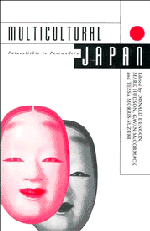Book contents
- Frontmatter
- Contents
- List of Figures and Tables
- List of Contributors
- Abbreviations
- Introduction
- Part 1 Archaeology and Identity
- Part 2 Centre and Periphery
- Part 3 Contact with the Outside
- Part 4 The Japanese Family
- Part 5 Culture and Ideology
- 14 Emperor, Rice, and Commoners
- 15 Two Interpretations of Japanese Culture
- 16 Kokusaika: impediments in Japan's deep structure
- Afterword: Diversity and Identity in the Twenty-First Century
- Index
14 - Emperor, Rice, and Commoners
from Part 5 - Culture and Ideology
Published online by Cambridge University Press: 05 November 2011
- Frontmatter
- Contents
- List of Figures and Tables
- List of Contributors
- Abbreviations
- Introduction
- Part 1 Archaeology and Identity
- Part 2 Centre and Periphery
- Part 3 Contact with the Outside
- Part 4 The Japanese Family
- Part 5 Culture and Ideology
- 14 Emperor, Rice, and Commoners
- 15 Two Interpretations of Japanese Culture
- 16 Kokusaika: impediments in Japan's deep structure
- Afterword: Diversity and Identity in the Twenty-First Century
- Index
Summary
Translator's Introduction
Among present-day Japanese historians, Amino Yoshihiko is unusual: a Tokyo University graduate (1950), he chooses to work in a provincial women's college; from a core specialisation in mediaeval history he explores backwards to ancient Japan and forward to the contemporary; he is deeply iconoclastic, raising fundamental questions about Japanese identity; and he is enormously popular, such that his books sell up to 100 000 copies.
Amino sees the history of Japan through fresh eyes, focusing not so much on the imperial and elite-controlled, rice-field based, Kyoto-centred, maledominated warrior and scholarly traditions, as on the regional kingdoms and countries, especially the patterns of pre-fourteenth century, pre-patriarchal diversity, and the mountains and villages and coastal settlements where different dreams stirred local communities throughout the archipelago and beyond, before the homogeneous myths of ‘Japan’ and the pretences of ‘emperor’ and sun goddess were imposed over the land.
The world Amino explores excites many in Japan, not least because, like the best historians, he is also partly a prophet. While shedding light on the forgotten or concealed past, he also suggests a new future which, by being imagined, becomes a possible agenda for social and political action.
An overwhelming majority of Japanese people believe even now that from the Yayoi to the Edo periods Japanese society was an agricultural society based on paddy fields, and if asked about ‘the ethnic identity of the Japanese’ the first thing they think of is paddy fields and rice.
- Type
- Chapter
- Information
- Multicultural JapanPalaeolithic to Postmodern, pp. 235 - 244Publisher: Cambridge University PressPrint publication year: 1996
- 3
- Cited by

